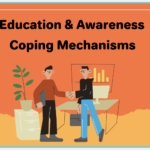Military service embodies a commitment to duty, often requiring individuals to leave their homes and families for extended durations. For servicemen and women in the UK, deployments can lead to significant periods of separation, presenting unique challenges that extend beyond the physical distance from family. The nature of military operations, whether due to training exercises or active duty engagements, necessitates that military personnel frequently relocate, sometimes to remote locations or conflict zones. This lifestyle can disrupt family dynamics and invoke emotional strain, both for the service members and their loved ones.
The separations inherent in military service can lead to feelings of isolation, anxiety, and uncertainty for those who are left behind. Families must often adapt to a new normal that lacks the presence and support of the deployed service member. Children may struggle with the absence of a parent, experiencing difficulties in school and emotional challenges that arise from missing key family events. Partners may face the burden of managing household responsibilities and emotional support without the usual companionship, ultimately straining relationships.
Furthermore, the psychological impact of military separation generates a cycle of distress. Families may feel the weight of waiting for contact during deployment, and uncertainties can amplify stress levels. For service personnel, the emotional toll of prolonged periods away from their loved ones can lead to difficulties upon return, as they navigate reintegration into family life. Understanding the profound effects of military separation on emotional health is critical in addressing the needs of both service members and their families. As we delve further into these dynamics, we will explore the various dimensions of emotional strain associated with such separations in military life.
The Nature of Military Deployments
Military deployments are a fundamental aspect of UK armed forces operations, shaping the experiences of service members and their families. Typically, these deployments can vary significantly in structure, duration, and purpose. Most commonly, military personnel are involved in three primary types of missions: peacekeeping efforts, combat operations, and training exercises. Each of these categories can lead to extended absences from family and home life, which can create emotional challenges.
Peacekeeping missions are often undertaken in regions facing conflict, requiring soldiers to work towards stabilizing the area and ensuring safety for civilians. Such deployments can last several months and may include touring in areas where the threat of violence is present, adding to the emotional weight of separation. Alternatively, combat missions, while less frequent, can be more intense, lasting from a few weeks to over six months, depending on the situation. Combat roles present unique risks and require service members to adapt quickly to changing conditions, all while being distant from their family support networks.
In addition to peacekeeping and combat deployments, training exercises also contribute significantly to the operational tempo of military life. Such exercises prepare personnel for immediate readiness and can lead to several weeks or months away from family, even in peacetime. The unpredictability of training schedules complicates the home dynamics further, often preventing adequate planning for family time. Another layer of complexity is introduced with rotations, wherein soldiers may be deployed multiple times within a year, resulting in frequent separations that heighten the strain on familial relationships.
Ultimately, the varying lengths and nature of military deployments in the UK can lead to substantial emotional strain for both service members and their families. The need for understanding and support is crucial to assisting those affected by these inevitable separations.
Emotional Challenges Faced by Servicemen and Women
Military service often necessitates prolonged periods away from family, which can lead to significant emotional challenges for servicemen and women. The impact of separation is multifaceted, with feelings of isolation and loneliness frequently reported among personnel. These emotions can intensify over time, especially during critical moments such as birthdays, anniversaries, or significant family events when absence is acutely felt.
Additionally, anxiety is a common response to the uncertainties tied to military deployment. Servicemen and women may experience worries about their families’ well-being back home, creating a relentless cycle of concern that exacerbates feelings of helplessness. The mental burden can morph into a source of sadness, as service members grapple with the challenges of maintaining connections amidst physical distance. The emotional strain can lead to difficulty managing relationships when returning home, as they often face the challenge of re-establishing bonds forged during times of separation.
The psychological consequences of prolonged separations are not to be underestimated. Research indicates a heightened risk of developing mental health issues, including depression and post-traumatic stress disorder (PTSD), among those who experience these emotional challenges. Service personnel may find their coping mechanisms strained to the limit, particularly when compounded by the stresses of military life, such as combat exposure or high operational tempo.
It is vital for both military leadership and family members to recognize these emotional challenges. Providing support resources, such as access to mental health services and fostering open communication, can serve as a buffer against the emotional strain caused by separation. Acknowledging these feelings and ensuring ongoing support can be crucial in mitigating the adverse psychological impacts faced by servicemen and women.
Impact on Family Dynamics
The emotional strain of military service in the UK extends far beyond the individual service member, significantly affecting the family dynamics at home. Separations induced by deployment create a myriad of challenges for spouses, children, and extended family members, fundamentally altering their roles and relationships. When a service member is away, the burden of managing day-to-day responsibilities often shifts to their partner. This sudden change can lead to feelings of isolation and stress as the spouse grapples with increased obligations, including parenting, finances, and household management.
For children, the absence of a parent can be particularly challenging. Young ones may struggle with understanding why their father or mother is away, often experiencing anxiety and sadness. Adolescents might confront different emotional hurdles, including resentment or feelings of abandonment, while also navigating their own developmental challenges. Coping mechanisms vary among children; some may channel their emotions into school activities or friendships, while others might become withdrawn. Family members are left to find strategies to maintain communication with the deployed service member, utilizing technology when available to forge a sense of connection despite physical distance.
Extended family members, including grandparents and siblings, may also face shifting dynamics. They often take on caregiving roles, providing additional emotional and practical support to the spouse or children left behind. This shift can strengthen familial bonds, but it can also introduce tensions, as the family adjusts to new responsibilities and a lack of the service member’s presence. Within this context, it’s essential for families to cultivate open channels of communication, fostering dialogue around feelings of anxiety and sadness. Although strains caused by separation are significant, families often find resilience and adaptability, reshaping their relationships to overcome these challenges in the military environment.
Mental Health Implications Post-Service
The emotional strain of separation from family during military service often leads to significant mental health challenges for veterans upon their return to civilian life. Research indicates a profound correlation between this separation and the onset of various mental health issues, including Post-Traumatic Stress Disorder (PTSD) and depression. In fact, studies suggest that approximately 11-20% of veterans who served in Operations Iraqi Freedom and Enduring Freedom experience PTSD, highlighting the severity of this issue.
Furthermore, family separations can exacerbate feelings of loneliness and isolation, increasing the risk for depression among military personnel transitioning back to civilian life. Data from the Veterans Affairs (VA) indicates that many service members report persistent sadness, anxiety, and difficulty in establishing relationships after returning home. The mental health implications of such experiences can severely hamper their ability to reintegrate into societal norms and connections.
It is essential to recognize these mental health challenges, as failing to address them can lead to long-term consequences, not only for veterans but also for their families. Access to mental health resources plays a critical role in their recovery journey. Programs tailored for veterans, including counseling and peer support networks, are vital for fostering resilience and coping mechanisms. Additionally, increased awareness and education among family members about these issues is equally important, equipping them to provide better support to their loved ones.
In light of these findings, understanding the mental health implications that arise from military service is crucial for fostering effective reintegration strategies. Veterans must be provided with appropriate mental health resources to help mitigate the negative effects of separation from family and promote overall well-being—ultimately facilitating a smoother transition into civilian life.
Coping Strategies for Service Members
Service members experiencing separation from their families often face significant emotional strain. Nevertheless, various coping strategies can assist in managing these challenges effectively. One fundamental approach is to enhance communication. Regularly scheduled video calls, messages, and emails can significantly bridge the gap created by distance. Utilising technology enables troops to maintain a sense of connection, providing significant emotional support for both soldiers and their family members.
Furthermore, developing mental resilience is crucial for coping with the unique stresses of military life. Techniques such as mindfulness and deep-breathing exercises can assist service members in staying grounded during turbulent times. Investing time in physical fitness, whether through group activities or individual workouts, can also be beneficial. Not only does physical activity promote better mental health, it serves as an excellent outlet for stress relief.
Another vital strategy is seeking support from resources available within the UK military community. Organizations such as the Armed Forces Charity and Support Organizations provide guidance and assistance tailored to the needs of service members and their families. These resources offer workshops, counselling, and peer support groups that enable individuals to express their feelings and experiences in a safe environment. Such support is instrumental in fostering a sense of belonging and understanding among peers who share similar challenges.
Family support is equally important; family members should be encouraged to express their feelings and frustrations openly. This open dialogue can help both service members and their families to feel more connected, even when separated. By implementing these coping strategies, service members can navigate the emotional strain caused by separation more effectively, ensuring sustained well-being during and after their military service.
Support Systems Available
The emotional strain that often accompanies separation from family during military service is recognized by various support systems available to service members and their families in the UK. These support mechanisms are critical for enhancing the mental well-being of those who serve and their dependents. One of the prominent organizations providing such support is the Soldiers, Sailors, Airmen and Families Association (SSAFA). SSAFA offers a range of services including counseling, advice, and practical assistance tailored to the unique challenges faced by military personnel and their families.
In addition to SSAFA, the Ministry of Defence has implemented numerous mental health programs designed specifically for active duty service members. These programs aim to address issues such as anxiety, depression, and post-traumatic stress disorder (PTSD), which can arise due to prolonged separation from loved ones. The military recognizes the importance of early intervention and strives to provide access to trained mental health professionals who can assist service members in navigating their emotional difficulties.
Furthermore, peer support groups play a vital role in fostering a sense of community and connection among service members. These groups facilitate open discussions and shared experiences, allowing individuals to communicate their feelings in a supportive environment. Additionally, community initiatives often host events that promote interpersonal relationships, make resources available, and strengthen the familial bonds that may be strained due to the demands of military service.
Thus, a combination of organizational support, mental health programs, and community initiatives helps to create a comprehensive framework that addresses the emotional toll of military service. By fostering these support systems, the UK military community is better positioned to help individuals cope with the challenges related to family separation, ensuring that they do not have to face these difficulties alone.
Testimonies from Veterans and Families
The emotional strain experienced by military service members and their families during periods of separation is a deeply personal and complex issue. Numerous veterans have shared their experiences, highlighting the myriad ways separation from loved ones affects mental health and family dynamics. One former soldier recounted, “Being deployed meant missing birthdays, anniversaries, and simple moments that could be shared. The absence was profound, not just for me but for my whole family.” Such sentiments resonate with many who serve, emphasizing the loneliness and isolation that often accompany military duty.
Family members also articulate their struggles with separation. A military spouse conveyed, “The phone calls are brief and often overshadowed by worry. I tried to stay strong for our children, but the emotional burden was heavy. I felt like a single parent, even though my partner was only a call away.” This perspective underscores the dual challenges faced during deployments: the service member coping with stress while also supporting their families from afar. The transition upon returning home can be equally tumultuous, with both veterans and their families navigating the re-establishment of connections that may have weakened in their time apart.
Coping mechanisms play a vital role in mitigating the impacts of these separations. Some veterans have found solace in peer support groups, sharing their experiences with others who understand the unique strain of military life. A participating veteran noted, “Talking to someone who has been through similar situations made a difference. It reminded us that we are not alone.” Similarly, families often lean on one another, forming networks of support that foster resilience during the challenging periods of separation.
The journeys of recovery and adaptation highlight the strength of military families. Frontline accounts reflect not only the emotional challenges but also the enduring bonds that can emerge from these experiences. As these veterans and families continue to share their stories, they illuminate the intricate landscape of separation, offering invaluable insight into the emotional strains tied to military service.
Conclusion: Moving Forward Together
As we have explored throughout this blog, the emotional strain that military personnel experience when separated from their families is significant and multifaceted. The nature of military service often necessitates long deployments and physical distance, creating challenges that can impact not only the service members but also their loved ones. It is crucial to acknowledge these challenges and address them through proper support systems.
The emotional toll of separation can manifest in various ways, including feelings of loneliness, anxiety, and depression. Additionally, families may experience their own difficulties, grappling with the absence of a loved one and the shift in family dynamics. Open communication, counseling services, and community support play vital roles in alleviating these strains. Fostering an environment where families feel comfortable discussing their emotions enables a more profound understanding of each other’s experiences and challenges.
Moreover, addressing the emotional needs of military families contributes to healthier relationships and smoother transitions upon reuniting. When service personnel return home, they may face readjustment issues, and families may require guidance to reintegrate successfully. By engaging in proactive measures and encouraging dialogue, we can help smooth this transition, leading to stronger family bonds and overall well-being.
Moving forward, it is imperative that we champion communal support for military families. Collaborative efforts among military leaders, mental health professionals, and civilian organizations can ensure that those affected receive the necessary resources and understanding. This united approach will help nurture resilience and forge healthier family dynamics, both during and after military service. Ultimately, acknowledging the emotional strains associated with separation is the first step towards collectively moving forward together.





